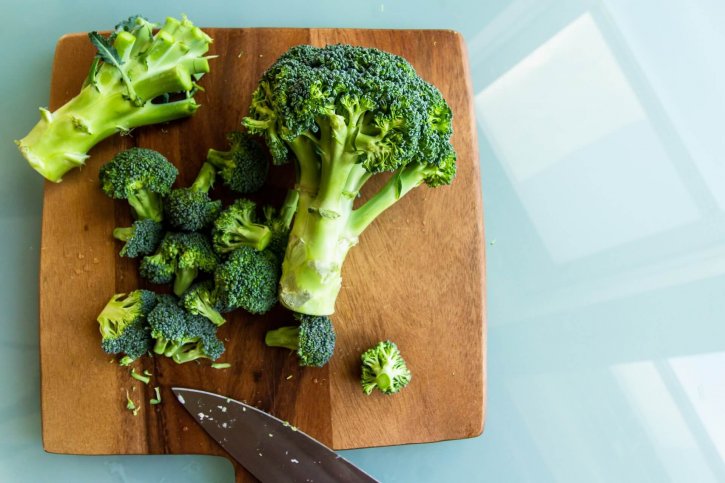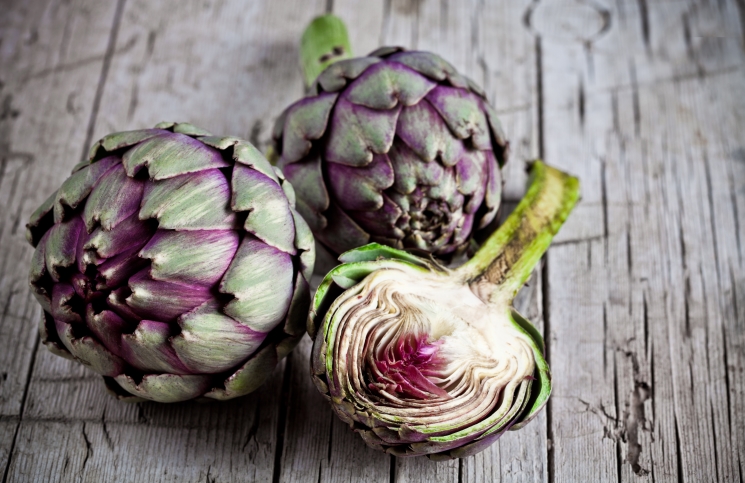During early pregnancy, the body’s needs start to change drastically. The body finds that what worked for it before doesn’t work for it anymore. Going through this kind of adjustment is what sends the body into overdrive in the first trimester. Morning sickness, anemia, fatigue, and mood changes are all a result of the changes the body is going through.
Due to the upheaval, and also because a mom-to-be wants the best for her baby, mothers often use supplements to help make their pregnancy healthier and easier. In recent years, chlorophyll has been found to be a go-to supplement for women seeking relief from early pregnancy symptoms.
What is Chlorophyll?
Chlorophyll is the molecule that allows plants to turn sunlight into energy, otherwise known as photosynthesis. It’s also what gifts plants and algae their green color.
We all eat chlorophyll when we consume anything green and leafy, like kale or spinach. It’s not a coincidence that contain the highest levels of chlorophyll are found on most lists of “superfoods”:
- Alfalfa
- Collard Greens
- Wheatgrass
- Spinach
- Wheatgrass
- Broccoli
- Asparagus
- Matcha green tea

Green leafy vegetables are loaded with benefits, like vitamins and nutrients. In general, most people don’t consume enough green leafy vegetables. And although people may consume some kind of food containing chlorophyll daily, most people don’t consume enough to benefit from what chlorophyll, specifically, can do. Pregnant women need even more vitamins and nutrients, especially in their first trimester.
What Does Chlorophyll Do to Your Body?
Much of the benefits of chlorophyll on the body involves cleaning, deodorizing, and blood production. Chlorophyll can detoxify the blood, boost the immune system, improve oxygen use, control body odor control, promote wound healing, and increase energy.
Chlorophyll is thought to have the ability to clean the blood through a type of “chelation.” Interestingly, chlorophyll is molecularly similar to heme (iron) molecules, the same molecules in blood. Iron is what makes blood bright red when carrying oxygen. When iron binds to proteins, it becomes hemoglobin, the same molecules that carry oxygen throughout the body. Just like hemoglobin, chlorophyll has the ability to carry oxygen in and transport toxins out of the body.

Tight molecular bonds can form between chlorophyll and toxins, allowing chlorophyll to carry these toxins out of the body. The anti-inflammatory benefit of chlorophyll occurs because of its ability to disrupt inflammatory chemicals within the body. Chlorophyll prevents the growth of harmful bacteria, allowing wounds to heal faster.
Chlorophyll supplements are nothing new. Around for half a century, chlorophyll supplements are available at most health food stores.
Is Chlorophyll Safe During Pregnancy?
As with most medications or supplements taken during early pregnancy, an OBGYN should be consulted prior to starting anything new. However, many health professionals believe that chlorophyll is not only safe — but beneficial for both the mother and the baby.
Chlorophyll During Pregnancy Benefits
One of the main complaints women have during early pregnancy is feeling sleepy, tired, and weak. These symptoms happen because the body is required to produce more blood in such a short amount of time, requiring lots of iron.
During pregnancy the body is in overdrive, and needs more oxygen than ever. In order to carry this oxygen throughout the body, a pregnant woman needs more blood. This is why many women develop iron deficiency anemia during their first trimester.

Boosting Blood Production with Iron and Chlorophyll
Most doctors will include iron supplements as part of a prenatal care program to prevent and treat iron deficiency anemia. When pregnant, a woman’s body requires 30%-50% more blood in her body. This need increases the amount of iron needed to produce that blood. By boosting iron and blood production, symptoms of tiredness and weakness decrease in the first trimester.
Chlorophyll, because its molecular structure is close to iron, functions similarly; this makes chlorophyll a go-to supplement to help a pregnant woman’s body produce enough red blood cells. Chlorophyll can be taken along with iron supplements, allowing both the iron and the chlorophyll to work together.
Treat Bloating
Bloating can become an issue during pregnancy, which causes walking and wearing particular clothing to be uncomfortable. Chlorophyll balances digestive bacteria and prevents constipation, making bloating from water retention much less likely.
How Much Chlorophyll Should Pregnant Women Take?
The amount of chlorophyll supplements that are right for a pregnant woman may depend on the type of chlorophyll supplements and the recommendations of her doctor. The correct dose of chlorophyll also depends on a variety of factors like health, age, and current medications.
Liquid chlorophyll has a strong taste that may be difficult for a pregnant woman, especially in the first trimester, to tolerate. They might even find it downright nauseating!
Taking doses and increasing the amounts slowly can help get someone used to the taste. Also, mixing the supplements with something more pleasant —like flavored sparkling water or a smoothie —can make it much more palatable.

Potential Side-Effects
SIde-effects resulting from chlorophyll are few and far between, none of them severe. The oddest side-effect is a change in a person’s feces—chlorophyll turns it green. When chlorophyll is taken along with iron supplements, it can create very interesting color changes every time a woman goes to the bathroom. Iron supplements tend to discolor feces, also and when combined with chlorophyll, feces can turn into a dark forest green color.
Is Chlorophyll Beneficial During Pregnancy?
First and foremost, a well-balanced diet full of green leafy vegetables is always recommended. Prior to taking supplements, women —especially those in their first trimester —should consult with their doctor to develop the best diet plan and medication regimen for their condition.
Chlorophyll supplements have many benefits for women in their early pregnancy. If approved by a woman’s doctor, chlorophyll supplements can be an excellent source for improving blood production. Used along with iron supplements, chlorophyll may help to avoid the excessive fatigue and sleepiness during a pregnant woman’s first semester.




